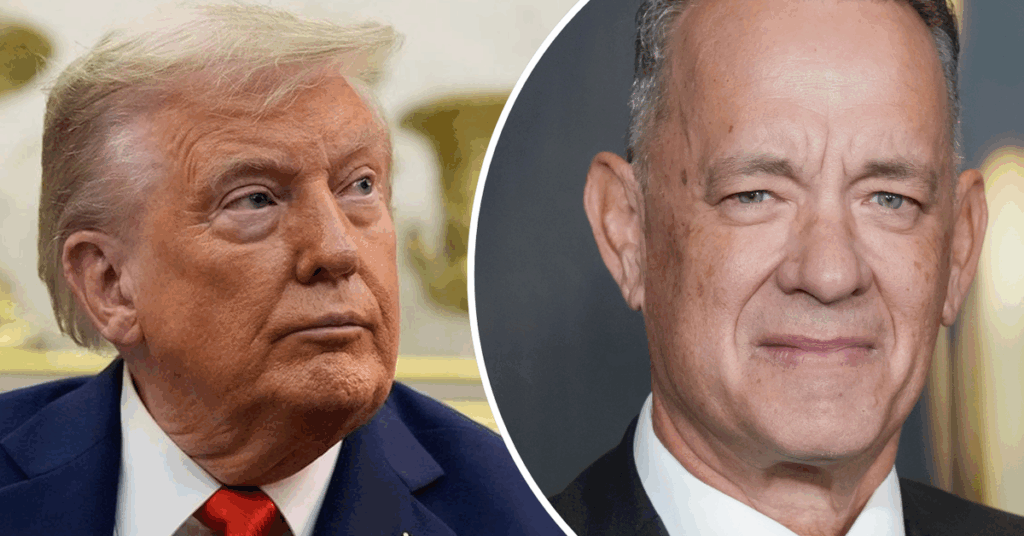
US President Donald Trump has publicly celebrated the cancellation of an award ceremony by the West Point alumni group that was set to honor actor Tom Hanks. The president labeled Hanks as “destructive” and “WOKE” following the decision to rescind the 2025 Sylvanus Thayer Award, which was scheduled for September 25. The US Military Academy’s alumni association reportedly canceled the ceremony last week.
“Important move!” Trump declared on his social media platform. “We don’t need destructive, WOKE recipients getting our cherished American Awards!!! Hopefully the Academy Awards, and other Fake Award Shows, will review their Standards and Practices in the name of Fairness and Justice.”
Neither West Point, its alumni association, nor a representative for Hanks immediately responded to requests for comment. The cancellation aligns with Trump’s broader efforts to influence the ideological direction and leadership of educational institutions and the military during his second term, utilizing executive orders, legal threats, and funding restrictions as tools of persuasion.
Trump’s Influence on Military and Education
This development follows a series of actions by the Trump administration aimed at reshaping the military and educational institutions. Earlier this summer, the Army Secretary was directed to review hiring practices at West Point, barring external groups from influencing employment decisions and removing a newly appointed hire who previously led the nation’s cybersecurity agency under President Joe Biden.
Additionally, West Point disbanded several cadet clubs focused on ethnicity, gender, race, and sexuality, reflecting the administration’s push to eliminate diversity programs across government sectors. In a symbolic move, the academy also rehung a painting of General Robert E. Lee in Confederate attire, as part of efforts to restore Confederate symbols that had been removed in recent years.
The Sylvanus Thayer Award: A Historical Perspective
The Sylvanus Thayer Award, named after an early superintendent known as the “Father of West Point,” has been awarded annually since 1958. It recognizes an outstanding American citizen whose service exemplifies the ideals of “Duty, Honour, Country,” as articulated in West Point’s motto.
In a June press release, Robert McDonald, chairman of the association board, praised Hanks for his contributions to the positive portrayal of American service members, veterans, and the space program, stating,
“Tom Hanks has done more for the positive portrayal of the American service member, more for the caring of the American veteran, their caregivers and their family, and more for the American space program and all branches of government than many other Americans.”
Retired Army Colonel Mark Bieger, president and CEO of the association, explained in an email that canceling the ceremony allows West Point to focus on its core mission of preparing cadets to lead and serve as officers in the US Army.
Hanks’ Political Engagement and Public Perception
Hanks, a prominent figure in Hollywood and a politically active celebrity, has consistently supported Democratic politicians and progressive causes. He has endorsed Barack Obama, Hillary Clinton, and Joe Biden in their presidential campaigns. Notably, he narrated a documentary for Obama’s reelection campaign in 2012 and hosted a prime-time special for Biden’s inauguration in 2021.
Hanks’ political engagements have often put him at odds with Trump and his supporters. In 2016, he referred to Trump as a “self-involved gasbag,” and he has critiqued Trump’s policies, including the attempted travel ban on Muslim-majority countries, describing such actions as a “brand of tragedy.”
During Biden’s inauguration, Hanks spoke of “deep divisions and a troubling rancor in our land,” warning against the distortion of truth by public officials. His portrayal of a Trump supporter on Saturday Night Live further fueled tensions with the president’s base.
Looking Ahead
The cancellation of the award ceremony and Trump’s reaction highlight the ongoing cultural and political battles that shape American institutions. As Trump continues to influence the direction of military and educational policies, the implications for future award recipients and institutional practices remain uncertain.
As the story unfolds, observers will watch closely how these dynamics play out and what they mean for the intersection of politics, culture, and public recognition in the United States.





